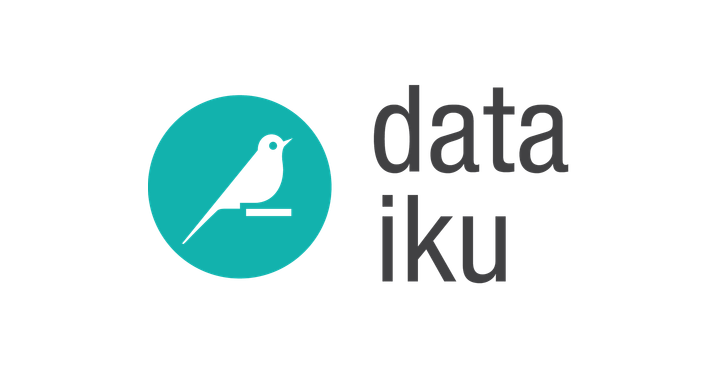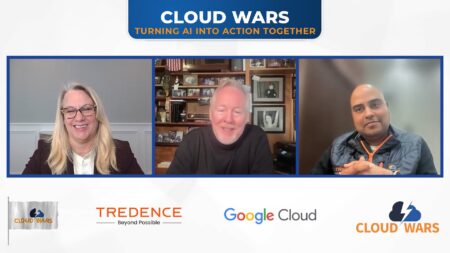The context and purpose behind this series: “The 17 Companies Reshaping the Landscape of Enterprise AI“.
Who They Are
Dataiku was started by Florian Douetteau, Clément Stenac, Thomas Cabrol, and Marc Batty back in 2013. It was founded on the principle that in order to succeed in the world’s rapidly evolving ecosystem, companies — no matter what their industry or size — must use data to continuously innovate.
Today, more than “450 companies worldwide use Dataiku to systemize their use of data and AI”. Investors noticed the growth and commitment to responsible AI which led to $400 million being raised in August 2021.
What They Do With Responsible AI
The Dataiku platform is considered an “all-in-one data science and machine-learning platform”. Its suite of capabilities is targeted at Business Experts, Tech Experts, and Enterprise Leaders. Dataiku’s targeted approach directly impacts a broad range of personas:
- Marketing Analysts, Financial Analysts, Quality Analysts, and Operational Analysts can leverage the Dataiku for Business Experts.
- Data Scientists, Data Engineers, Software Engineers, and Data Architects can utilize the Dataiku for Tech Experts.
- Head of Analytics, CDO’s, Security & Compliance, and Head of Automation individuals can increase productivity with Dataiku for Enterprise Leaders.
Additionally, Dataiku believes in “making Enterprise AI and organizational asset.” All levels of the company can be successful by scaling and employing a robust data methodology.

I believe that when it comes to AI technology, software vendors have a responsibility here too. AI technologies should make it costly to not see bias or other problems in AI systems. Human responsibility should be explicit, and software systems should prompt this change.
Florian Douetteau, Dataiku CEO: What It Will Take to Make AI Likable?
Most Unique / Impactful AI Application
Organizations face the challenge of turning data into actionable and intelligent insights. Data becomes extremely siloed across the company infrastructure.
The Analytic Apps with Dataiku provides a What-if Analysis feature which allows “data scientists and analysts to check different input scenarios and publish the what-if analysis for business users“. The dashboards allow business users and project stakeholders can easily see the outputs of AI projects and track KPIs and value.

Who They Have Impacted
Standard Chartered Bank faced a challenge when trying to modernize and streamline its analytical process to build collective intelligence.
Business operations were spread across two account structures, two currencies, 150 countries, and 1,000 cost centers. As a result, outdated spreadsheets hit a maximum limit of 10 million rows of data. Further, business teams were extremely limited in their data scope to only very basic account structures and three months of data.
In order to gain the insights needed, Standard Bank realized that the volume data would quickly escalate from 10 million rows to 400 million rows of data. And, to add to the frustrations, Standard Charter had a robust data warehouse that no one was using. It included terabyte-level compute that costs them over a million dollars and was only being used 3% capacity.
Dataiku collaborated with Standard Charter to tackle these issues. This collaboration resulted in:
- 2 people armed the Dataiku applications are now doing the work of about 70 people limited to spreadsheets were able to do.
- Identifying the opportunity to turn 2,500 effort hours down to 10 minutes using future innovation in data and process acceleration.
Closing Thoughts
Managing data with AI optimization is not a simple “one and done” project. To this point, establishing a Center of Excellence will provide long-term value and sustainability in data and AI investments. Your company’s success relies on strong data insights backed by a secure and scalable infrastructure.
Keep in mind, people are the backbone of any AI effort to drive decisions, organizational vision, and, most importantly, collaboration across the enterprise. Without the collective knowledge and cohesiveness of finance, operations, technology, and lines of business, any established harmony would splinter into chaos.
Additional Resources
- https://techjury.net/blog/big-data-statistics/
- https://blog.dataiku.com/2014/08/07/pronouncing-dataiku
- https://www.dataiku.com/stories/dataiku-investors/
- https://www.dataiku.com/stories/establishing-responsible-ai-for-a-sustainable-data-future/









